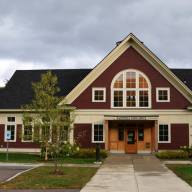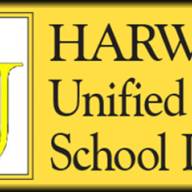At its February 9 meeting the Harwood Unified Union School District (HUUSD) Board voted unanimously (Scott Culver was absent) to appoint Dr. Mike Leichliter as the new superintendent beginning July 1, 2022. The board went into executive session to discuss his contract, which was then approved in open session.
The three-year contract begins July 1, 2022, and runs through June 30, 2025. The salary is $165,000. Salary increases during the contract will parallel those of teachers in the district.
The three HUUSD student board representatives — Maisie Franke, Maddie Thibault and Jeswin Antony -- gave a presentation on what’s going on at Harwood Union High School, from sports to the school musical, as well as issues with vaping and vandalizing bathrooms. These student representatives have helped facilitate student dialogues around these and other recent issues in the high school.
HUUSD director of curriculum and technology Shannon Lessley presented to the board HUUSD’s plan for the use of the latest Elementary and Secondary School Emergency Relief (ESSER) funds, federal funding available to local educational agencies. ESSER I, also known as Coronavirus Aid, Relief and Economic Security Act (CARES) ESSER funds, provided the HUUSD with $329,114 to support virtual schooling, additional nurse staffing, bus monitors, HVAC system improvements and electronic devices for students and staff. HUUSD received $1,382,740 from ESSER II, an expansion of CARES ESSER funds and with the addition of the Coronavirus Response and Relief Supplemental Appropriations Act (CRPSA) funds. Those funds were used to support recovery plan coordinators, additional academic and social/emotional student support staff, administration of the comprehensive school climate survey and a behavior tracking program across all schools in the district.
Now before the board is what to do with $3,110,032 in ESSER III funds, also known as the American Rescue Plan (ARP) ESSER funds. Lessley outlined potential uses for these funds, including improvements to environmental safety, academic and students’ social, emotional and behavioral needs. The recommendations are to continue some of the projects and resources supported with ESSER II funds, such as providing PPEs for students, custodial staff, the nurse COVID coordinator, summer school transportation, tutoring, counseling and other tools to address student needs as a result of the COVID-19 pandemic. New uses for ESSER III funds include a new proficiency-based learning coordinator for grades 7-12, a wellness and restorative consultant to assess and assist with behavior and social emotional issues, as well as equipment for a sound field project to increase hearing capacity in classrooms and other spaces.
These ESSER III funds, the largest pot of money provided to schools by the federal government as a result of the pandemic to date, come with requirements. Twenty percent of the funds must be used for academic support, the funds must address the impact of COVID on students’ academic, social, emotional, behavioral and environmental safety needs, funds must be used by September 2024, the plan for the use of these funds must be made public and school boards must engage with stakeholders, such as students, parents/guardians, teachers, school administrators and student populations such as students with disabilities and English Language Learners.
A feedback form for community members to share their thoughts on priorities for these funds is available at huusd.org via a yellow button on the upper right side of the homepage entitled ESSER Funds, or here: https://docs.google.com/forms/d/e/1FAIpQLSeEZxaWQJTgx-3YX9q2ojDAjB-9WwmqS_Vg8C6eGjlDBbRL8A/viewform












